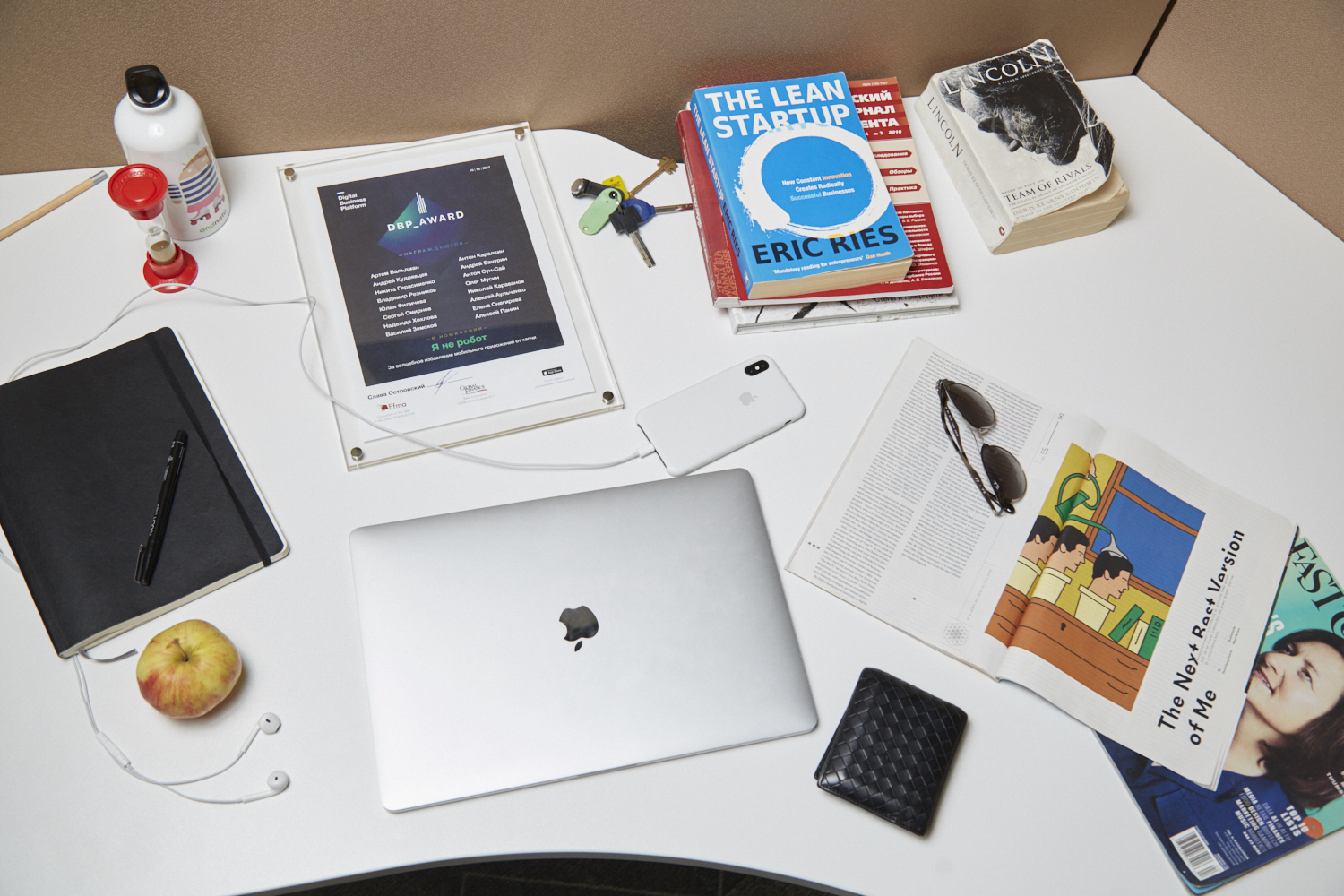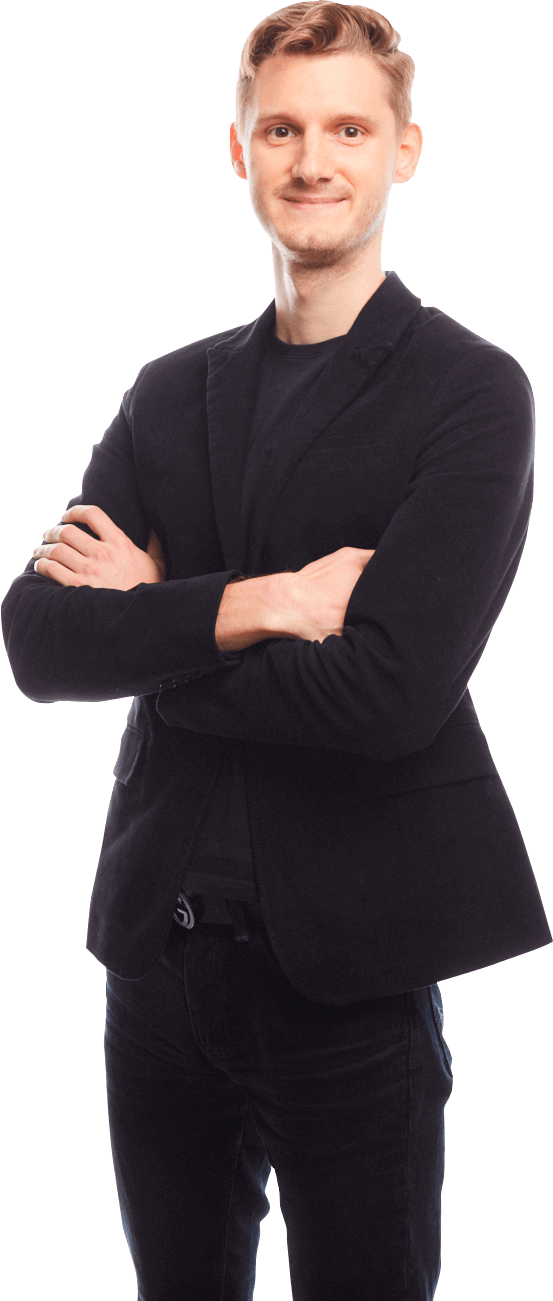Being Employed with Sberbank
When I was still studying at the Moscow State University Economics faculty, we gave a conference presentation for Sberbank, and I was invited for an internship. Shortly afterwards, something interesting happened to me. Back then my internship supervisor worked in SMS-banking. We were working in the meantime on a pilot project with an overseas company and we wanted to use NFC for payments. Signing the agreements and all the other documents, as well as sending them to their office, was like going through hell.
My colleague and I figured out how to optimize this process, we talked to the delivery company guys and got them interested, though they lacked resources. Then I found out that Herman Gref was planning to pay a visit to our office. He is highly respected in Sberbank and people make preparations for his visits. I decided to approach him in the corridor and tell him about our delivery process optimisation idea. He suggested we take a walk, asked me about my degree, previous jobs and background, and accepted my 3-slide presentation, which outlined how the process was organised and what could be improved.
Shortly afterwards I got a call from a delivery system guy who said resources had been allocated. We placed onsite post boxes in our Vavilova Street office; you can simply put your letters inside and they will be delivered. I believe the fact that the CEO accepted an intern’s idea proves that Sberbank really does change and it does so at all levels. This has proven to be true a couple of more times over the 6 years that I’ve worked here. If you work hard and break new ground, the sky’s the limit. I haven’t been stuck in one position for too long, I’ve changed projects frequently, I’ve also worked on the ‘Sberbank Online’ app.
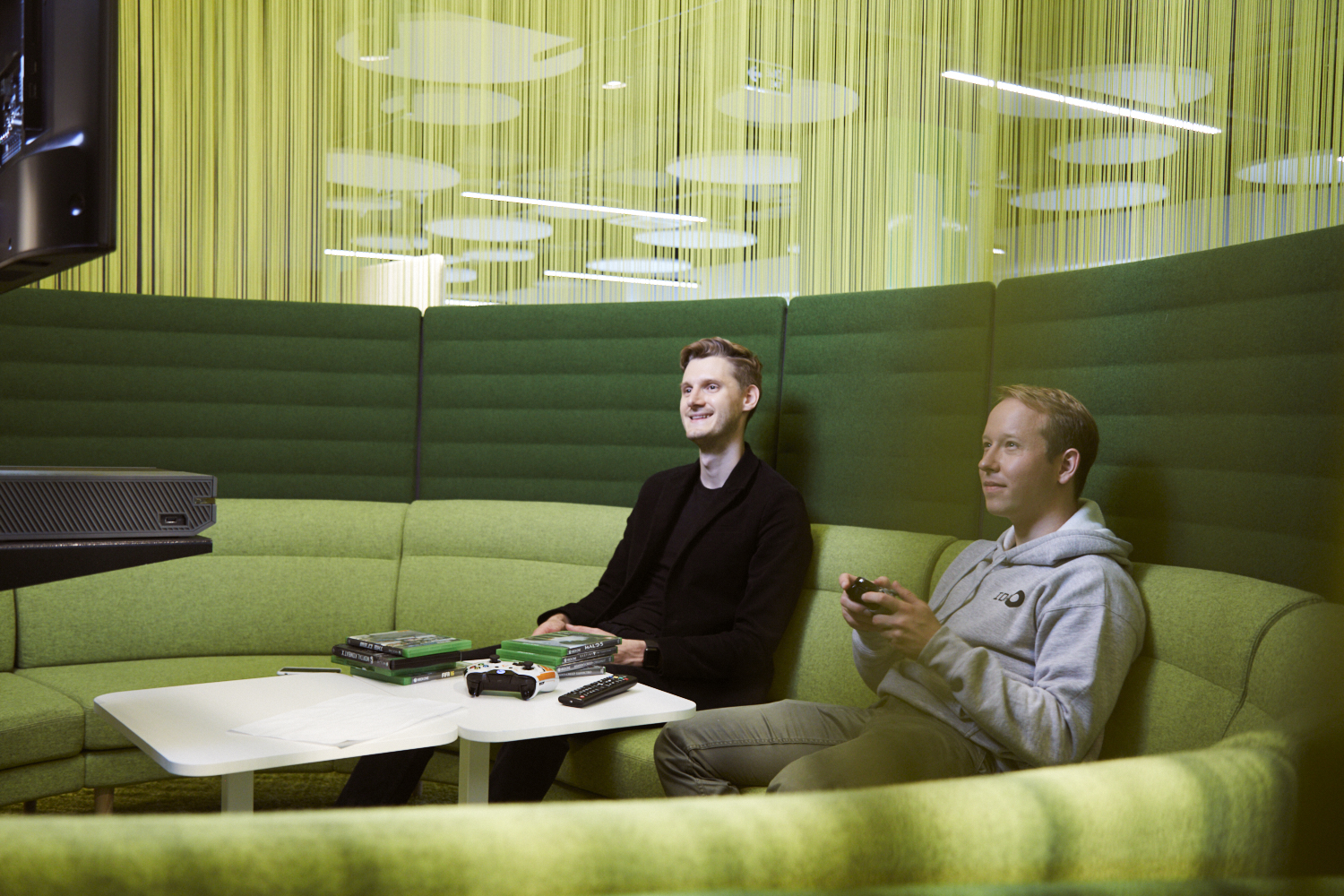
Right now I’m the owner of ‘Sberbank ID’ (http://www.agilebasics.ru/po/); we use Agile in our work. Imagine Facebook-login and Apple Pay combined into a single service. You go to the Aeroflot website, click on ‘Pay via Sberbank’, your data is automatically filled in, your card is used to buy a ticket – all of this is just one click away. ‘Sberbank ID’ is already available on a number of websites, though only for payment – the client still enters personal data manually. My team and I want to automate this.
Working as a Product Manager
Product Manager is an emerging profession, PM courses and programmes have only just arrived. For example, I was recently one of the ‘Project seminar’ teachers as part of ‘Marketing and Market Analytics’ program at the Higher School of Economics. My colleagues and I told the students about our work and the skills and competences it requires. To me, Product Management is the most exciting job in the world. A PM tries to understand people’s needs. None of us is a Steve Jobs, of course, we need to continuously learn, listen to feedback, absorb information and identify the key points. This is the creative part of the job; as for the managerial part, I manage the project, the team, etc.
A Product Manager needs to be competent in three areas: management, IT and design. Management and design are what I’m best at; at a certain point of my life I gave a lot of presentations – they are a design product too. As for the tech side, at first I asked my colleagues for help, though with the right motivation you can learn to code or wrap your head around a system architecture. Being a PM requires learning quickly. Imagine you’re employed with an IT-company, and tomorrow you get employed by a medicine development business. This shift shouldn’t hold you back. You start learning the basics, then you dive deeper and realize you can do it.
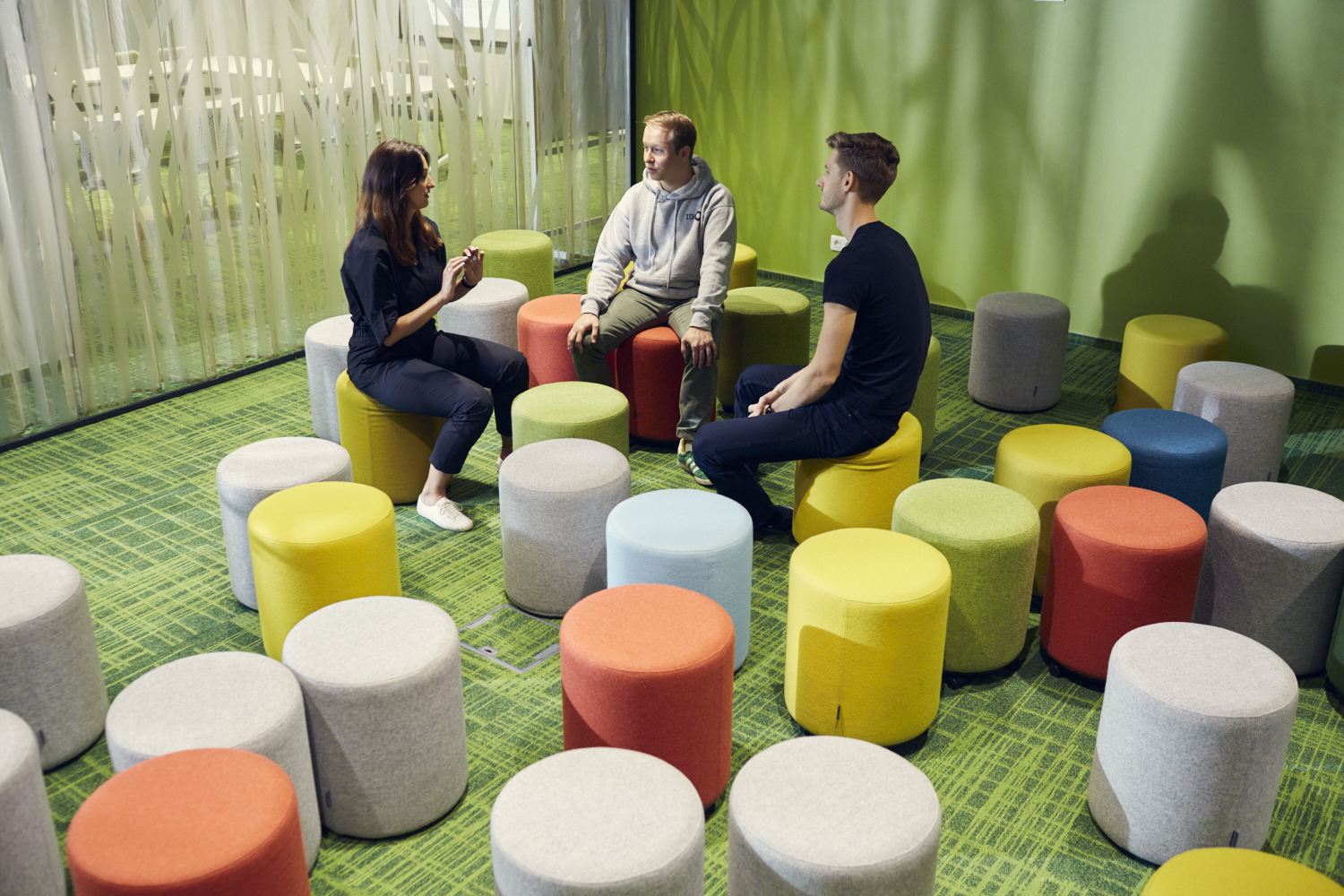
‘Sber is one of Russia’s best employers’
If you are a Google or Facebook employee, your work is strictly regulated. You can be creative in your own area, though going beyond that is unwelcome. Apple goes even further – every employee has a specific area of responsibility and the Directly Responsible Individual is the only decision-maker. Sberbank is only starting to compete with tech companies; some processes aren’t perfect and need to be improved. That’s why you can bring your own ideas to the table; if you have a product or service idea, if you develop it and bring it forward, it may become the next fintech breakthrough.
This approach goes beyond products. Before I got a job with Sberbank, I had enrolled in a part-time Stanford University program so I went there occasionally to attend lectures. On the last day of the program I was talking with the organizers, and we came up with the idea to invite Herman Gref (who happened to be in California at the time) to give a presentation. As a result, Sberbank became a partner of the program, and four employees took part in it. Gref later invited us to a private party-lecture for Sberbank Board Members. What I’m trying to say is that any idea can be backed up here, though opponents are always there too. Introducing organizational changes is an ambitious goal, however someone will always find a way to overcome all obstacles. Sber offers plenty of opportunities and is one of Russia’s best employers.
More than a Banking App
For the second or third consecutive year ‘Sberbank Online’ has been ranked among Russia’s top 5 most downloaded apps. That is, in Russia ‘Sberbank Online’ is as popular as WhatsApp and even more popular than Facebook. It has 30 million monthly users, which is impressive; the app has long been multifunctional – people have gotten used to it so it’s better to introduce new features rather than release a whole new app. We’ve recently launched ‘Chat’ that allows clients to exchange messages, transfer money and leave comments. My friend Yura is in charge of it. The guys also introduced stickers like in ‘Telegram’, but with animation and sound effects. Yura came up with the idea, pitched it and then the team joined in. About a hundred iOS and Android developers are currently working on Sberbank digital products. We’ve become an IT company too, not only a banking or finance one. I’m positive that with time the brand name will be replaced with Sber.
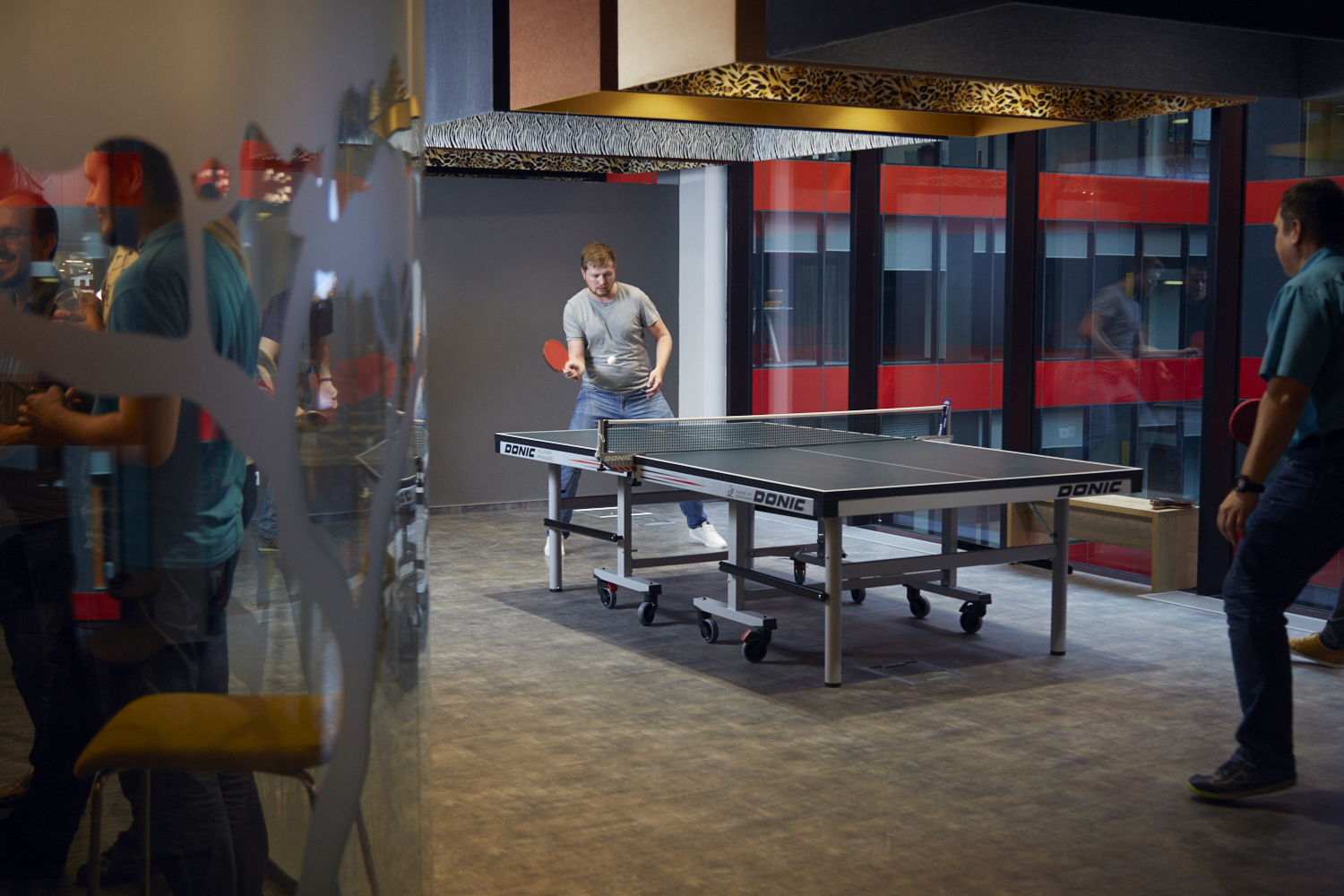
New Tendencies in Digital Services
I’ve been studying psychology lately to better understand the motivation of our clients. For example, we all understand that Facebook is designed to always bring users back to the app, have them watch something, update the feed. Which is great for the company – this way it can show users more ads and harvest more user data. But users hardly benefit from this, quite the opposite – they waste their time and energy. It feels like the new tendency focuses around working in the best interest of clients, saving their time and showing only important stuff. One more crucial point is teaching clients to save money. People prefer immediate pleasure, they don’t like to wait. The same is true for finances. We buy unnecessary things instead of saving money for a new apartment or for our children’s college tuition. I think we need mechanisms that would improve our clients’ financial condition and give tips on how to spend money wisely.
What Inspires Me
I like reading biographical books in English, especially about achievers whose decisions I analyze. Case in point, Abraham Lincoln. Here is a bright example. During the Civil War he appointed his legal adviser as the Defense Minister; it was his former employer who once failed to arrive to a court hearing, which Lincoln had long been preparing for. When he was asked to explain his decision, the President said: ‘I realized that this man is best suited for the position. We fight for freedoms, the fundamental values of the society. If I had not appointed him, the whole nation would have lost.’ Stories like that are inspiring.
Going back to the modern world, Y Combinator courses are really useful. It is one of the world’s largest accelerators, it is based in Silicon Valley. Many successful startups that have become big businesses started there. They have an online Startup School; last year they invited a lot of great speakers. For example, Slack CEO and founder Stewart Butterfield, who tried to launch an online game twice: the first time around he ended up with Flickr, a photo storage service, and the second time around he came up with Slack, a corporate messenger. Butterfield believes that recognizing client needs and responding to them in a timely manner is key. Who knows, maybe the next ‘big product’ will be born out of a commonplace thing we all take little notice of. It also offers a lot of practical tips on product launching, PR and marketing.
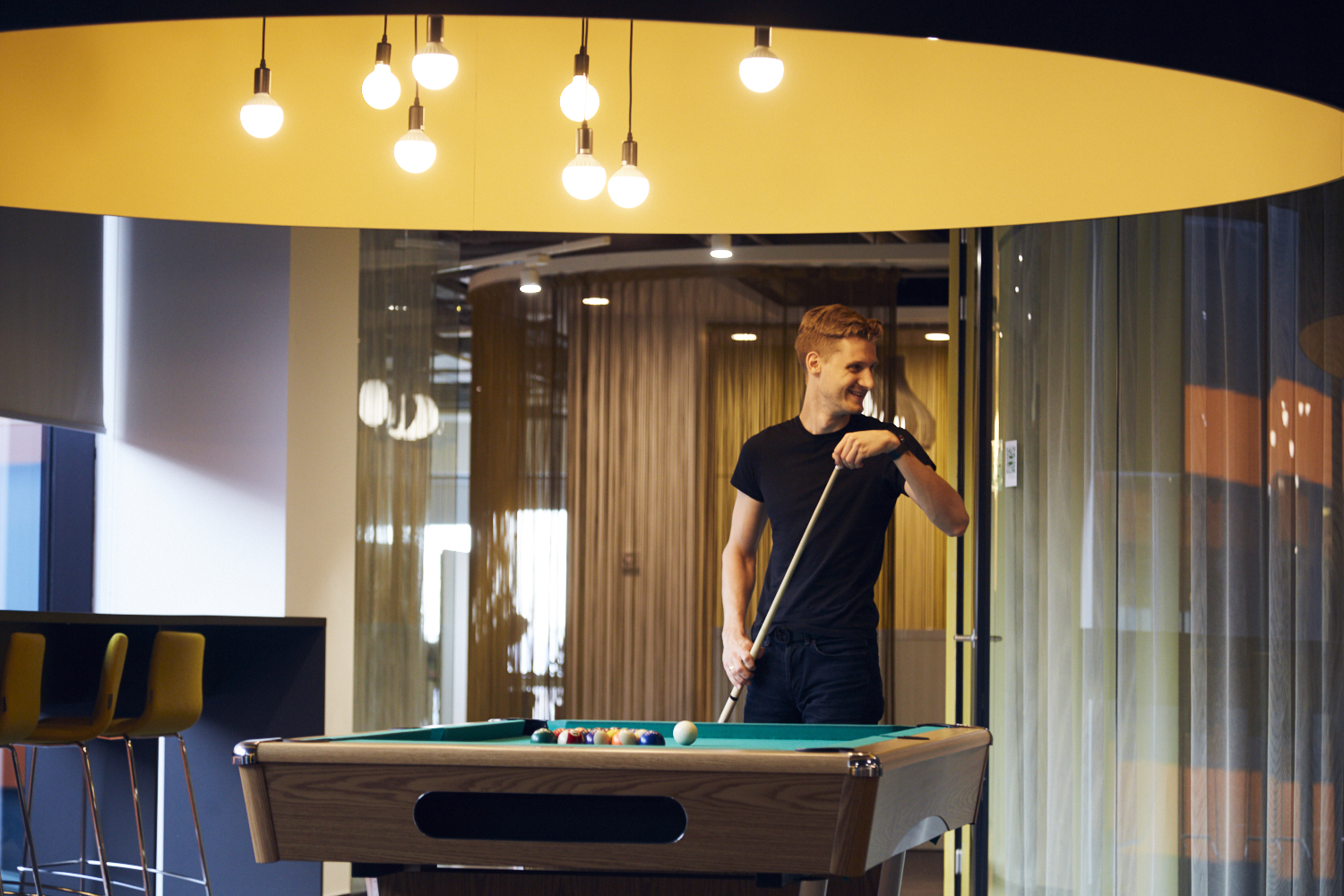
Where Do New Ideas Come From?
Hobbies help to find fresh ideas, think outside the box, get out of the rut. When we turn our attention to something different, our brain generates new ideas. Every Wednesday my colleagues and I get together in a studio for a couple of hours and play classic rock or punk by Russian and foreign bands. Now we write our own songs, sometimes we give concerts. I play the keyboard and sing, we also have a drummer, a guitarist and another singer. It took us ages to come up with the band name, we ended up with an acronym MVP, we all understand it and relate to it. It stands for Minimum Viable Product which is a service with just enough features for launch and test.
Meditation also helps me a lot, I have been doing it for about a year now. I try to practice it for 10 minutes a day. When you constantly work hard, you go crazy. You think of nothing else but work, which is counterproductive – in fact, if you manage to take a break, your thoughts become clear. We brush our teeth because we know that otherwise they will hurt and fall out. Sooner or later, we will realize that the brain also needs clearing, this is where meditation steps in. We should all learn to step back and relax, as well as eat healthy and get enough sleep.
